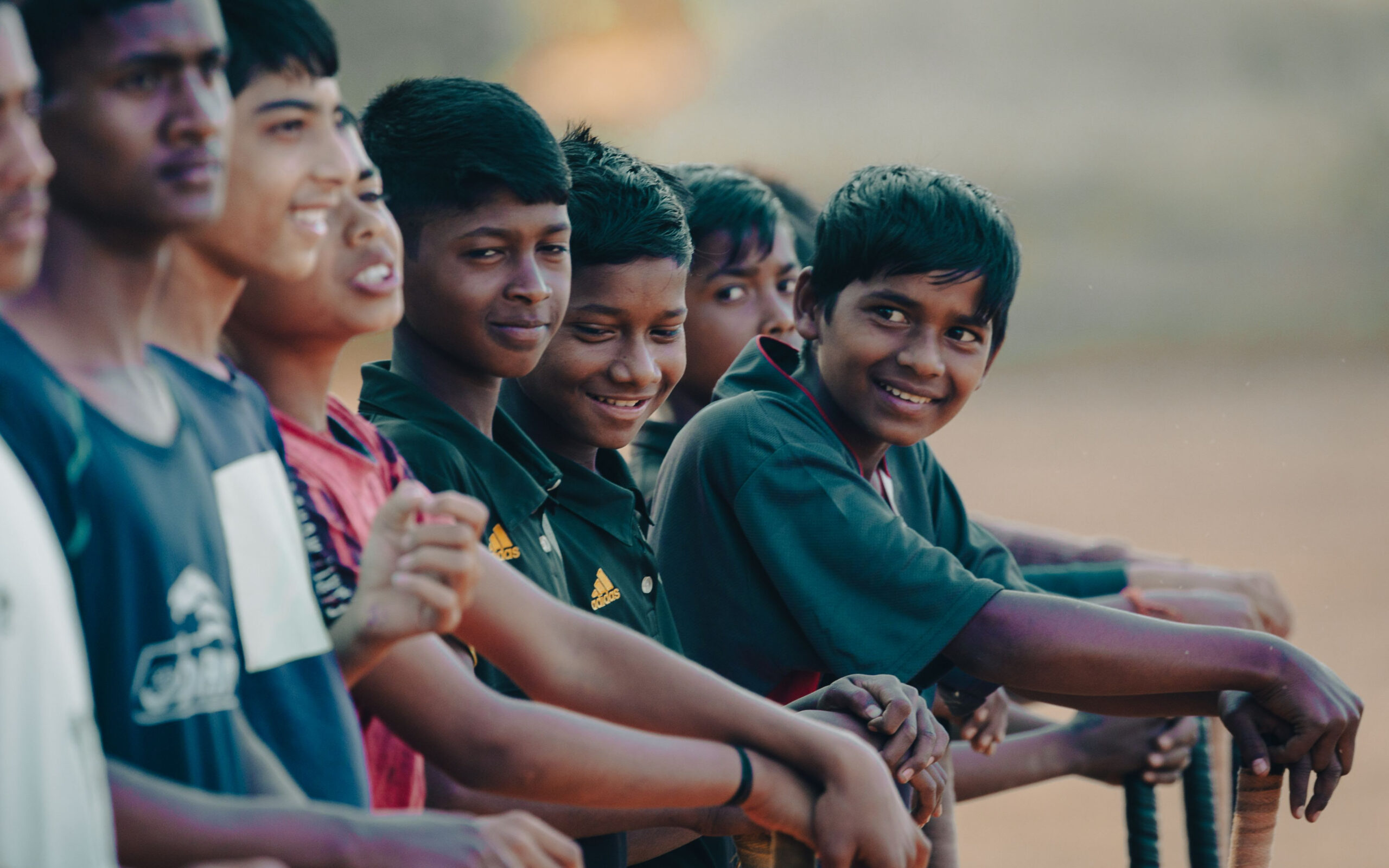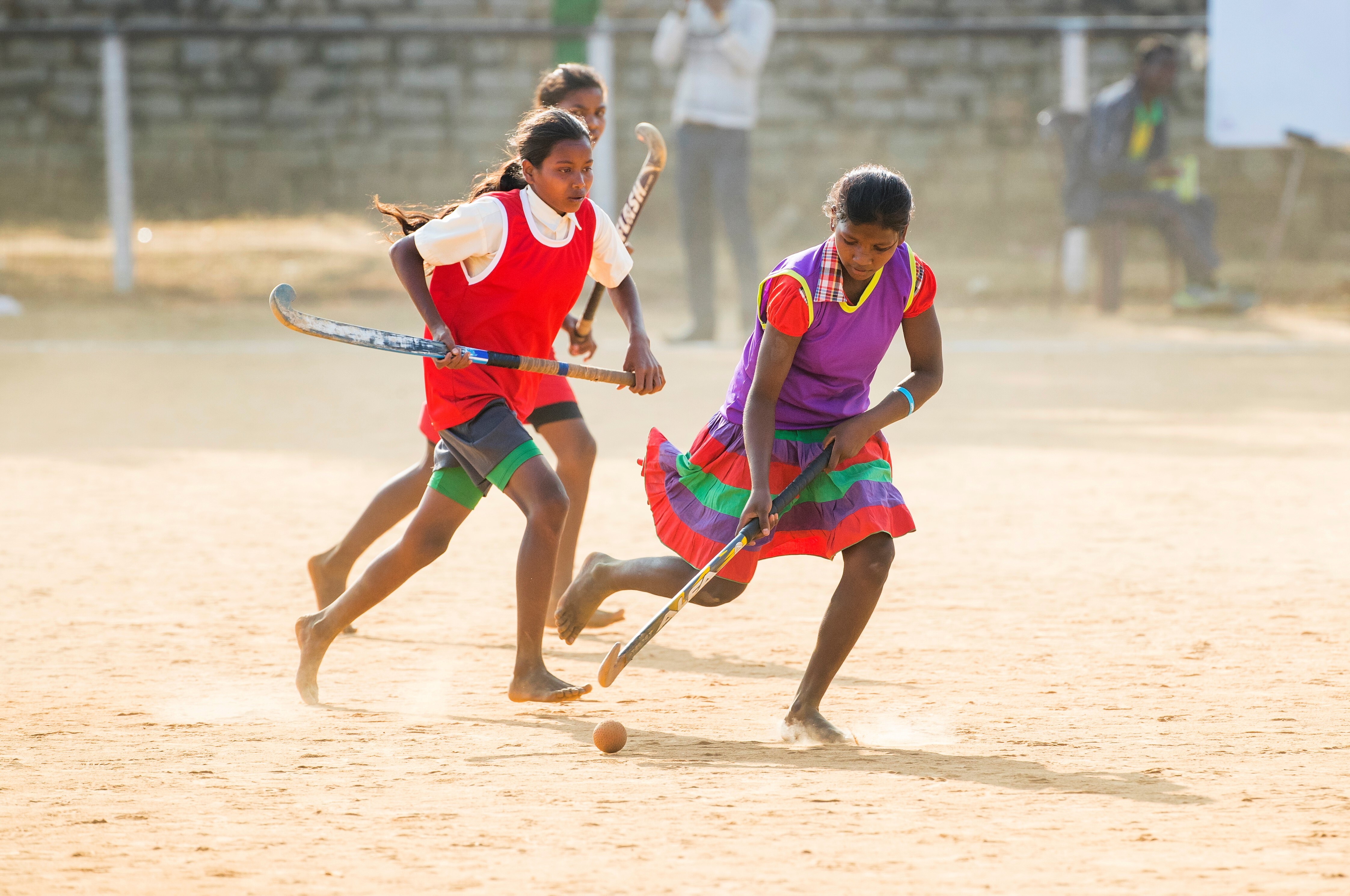Welcome to the August edition of the Sport for Development newsletter! In light of India winning the bronze medal at the Olympics last week, we'll explore the power of hockey in advancing employment and empowerment in India.
We'll take you into the inspiring journey of Vineet and his role in the hockey program in Jharkhand. A powerful collaboration between the government, the Collective for Integrated Livelihood Initiatives (CInI), the Royal Dutch Hockey Federation (KNHB) and Bovelander Foundation. Through this program, Vineet is helping to uplift communities, provide opportunities for youth and develop future leaders.
|
|
|
 |
| KNHB promotes life skills development through sports and play, while providing education opportunities to Hockey coaches and players.The coaches in their program are supported and taught how to play, set goals, take charge of their lives, care for themselves and others, speak up, dream big, and become the game changers of tomorrow. By connecting organizations, local schools, sports associations, and partners, they build communities where everyone is united and empowered through sport. |
|
From mud fields to careers,
Vineet's mission in Jharkhand
|
|
|
|
With over 15 years of experience in the development sector, Vineet Lakra has dedicated the past 7 years to working with the Collective for Integrated Livelihood Initiatives (CInIcell). In collaboration with the Royal Dutch Hockey Federation (KNHB), he coordinates a hockey program in the state of Jharkhand, serving three districts: Khunti, Simdega, and Gumla. As a predominantly tribal region with woodlands and small towns, the region struggles with multifaceted challenges, including poverty and limited opportunities.
"Hockey is deeply rooted in our culture, entire familiesfrom children to elders, playing the sport on mud grounds."
The hockey program starts at the grassroots level, focusing on children aged 9 to 14. Many of them use bamboo sticks because they cannot afford traditional equipment, but the program provides all necessary gear for training sessions and tournaments. Initially, the goal was to identify talented players, provide them with advanced training and place them in respected academies. However, the need to make an impact on all participants led to the introduction of life skills sessions. "We teach confidence, communication and teamwork through games during our hockey sessions. This helps rural children, who are often not very expressive, to develop essential life skills," Vineet explains.
Over the past six years, the program has reached over 12.000 children, participation has nearly reached equal levels with 45% being girls. With Menstrual Health and Hygiene programs, we ensure that girls are educated, enabling them to fully participate in school and hockey sessions without interruption.
|
|
The program also provides significant employment opportunities. Former students who couldn't reach the national team level often return as trainers. Most of the trainers are locals from the same villages, which is essential as they speak the local languages and understand the community's needs. This approach not only ensures that the program is culturally relevant and sustainable but also creates jobs, providing stability in districts where many families rely on agriculture. It empowers both male and female coaches.
Looking ahead, Vineet envisions even greater integration of sports and social development. He notes that the community now sees the program as reputable and capable of training children effectively. Parents approach the program with the hope that their children can become both skilled players and responsible citizens. A partnership with the local government adds to the success of our program. This allows access to artificial pitches and participation in government-run tournaments, enhances children's training and exposure.
"Seeing the children become more expressive and confident, knowing we are helping them build a better future, is incredibly rewarding." Vineet concludes.
The Sport for Development program in Jharkhand is making significant strides towards achieving SDG Goal 8. By combining technical training with life skills education and addressing gender-specific needs, the program is not only developing future hockey stars but also empowering a generation of confident, skilled, and socially aware young individuals. That gives the support they need to secure meaningful employment and build sustainable livelihoods.
|
|
|
"They meet different cultures, broaden their horizons and become more open to building a good life and career for themselves" - Vineet Lakra |
|
|
Sports and economics
Empowering youth with valuable skills develops a way for new opportunities and career pathways. The Sport for Development (SFD) program effectively utilizes sports to promote employability by enhancing leadership, teamwork and discipline, a sense of entrepreneurship and creating direct and indirect job opportunities. Many young people develop the skills and confidence needed to succeed in the workforce.
|
|
|
Sport for Development Program
|
|
|
|
Sport for Development empowers youth to create lasting change in their communities through the power of sports and play. This program, funded by the Dutch government, is a powerful initiative aimed at contributing to the Sustainable Development Goals (SDGs) and cultivating meaningful youth engagement and social impact on a global scale.
For over 20 years, the program supports a world where children and young adults actively contribute to vital communities. This not only promotes healthier lifestyles through sports and play, but also improves access to formal and informal education, gender equality, women's participation, employability and entrepreneurship. Sport for Development creates safe spaces for youth to explore and embrace their authentic selves. |
|

The program is implemented in six different regions worldwide through a powerful partnership between the International Sports Alliance (ISA), Right To Play (RTP), the Royal Dutch Football Association (KNVB), and the Royal Dutch Hockey Federation (KNHB). Together, these partners form a solid collaboration and use sports as an impactful means to promote social change, well-being, education, equality, peace and employment. |
|
PARTNERS
SPORT FOR DEVELOPMENT
|
|
|
|

